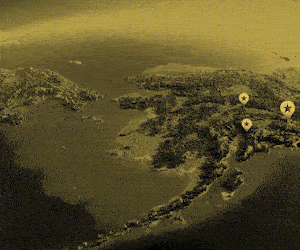Court upholds river arrest by Park Service
It is appropriate for the executive branch to have the tools needed to do its job, but it should not be at the expense of justice
Last updated 11/24/2013 at Noon
At the end of October this year, the U.S. District Court for the District of Alaska handed down a case brought by Alaskan John Sturgeon, as another in a long list of decisions upholding the federal government's power to circumscribe our rights to use reasonable and appropriate methods of access to remote areas of the State.
Without criticizing either the outcome or the reasoning that was used to achieve that outcome, this case, if it withstands appeal, will be just one additional landmark along the way to the apparent objective of turning virtually all of Alaska into a permanent, vacant wasteland akin to the dreams of generations of science fiction writers dating back to the days of yore.
There can be no doubt that the wilderness of the Last Frontier has inspired in the minds of adventurers and their wannabe ilk a vision of untamed lands and "the wildlife that has never known harness." On the other hand, there has been a steady stream of others who have come into the country for the sea otters, the fish, the timber, and the minerals, including copper, gold, zinc, coal, oil and gas. More recently, there has been an influx of those who come to gape and stare.
Inevitably, the competing interests of the visitors, whether arrived 10,000 years ago or just got off the cruise ship, clash with those who have come before. Some stay, some move on, but all seem to leave their mark. Without putting too fine a point on it, the conflicts that Alaska has witnessed never seem to end. Many of us hoped that with statehood, the resolution of some such conflicts would devolve to a regional level; however, Native Land Claims were unresolved, so state land selections reasonably had to be put on hold.
Similarly, there was an over-riding need to carve out at least some of the more spectacular natural components of the state because of their uniqueness - Mount McKinley is the highest mountain on the continent.
Foreseeably, the best efforts and intentions to resolve these differences have spawned schools of subsidiary problems with which we all have to live. The recently-decided Sturgeon case is an illustration of the ongoing frustration with the problem-solving tools that we are called upon to endure.
In that case, Sturgeon was operating a hovercraft on the Nation River, a navigable river ceded to the State of Alaska at statehood. As he passed through ANILCA-designated national parklands, he was apprehended by Park police who cited him for violating Park Service regulations. Sturgeon defended himself unsuccessfully on the theory that he was on state-owned waters. He was found to be in violation of the Park Service rules. Sturgeon challenged the application of the rules and the federal district court denied relief.
The court's reason for doing so was straightforward. Under the Administrative Procedures Act, which governs judicial challenges to federal regulations, the court can only consider the administrative record prepared by the agency in question. If the agency acted properly in the creation and administration of the regulations, the court has no power to question the application. The burden is on the challenger to prove, by a preponderance of the evidence, that the agency acted in a way that was arbitrary, capricious or without basis in fact. In this case, the evidence did not support such a conclusion, and the challenge failed.
The problem with the case is not that the law was not properly applied by anyone. Nor was it a situation where the broad general concept is somehow misconceived. The problem is that the result is - plain and simple - wrong.
The Administrative Procedures Act has been carefully reviewed by the Supreme Court of the United States in scrupulous detail, and there is a massive body of administrative law that has emanated from this statute and its endless implications. Every federal agency that decides anything falls within its ambit, and its uniform application touches the life of every citizen. Brilliant scholars have supplemented the literature with endless cascades of pedagogy on the topic.
Unfortunately, all the king's horses and all the king's men still cannot overcome the fact that the ability of a citizen to successfully challenge a bad law, properly enforced and implemented, is missing from the equation.
We look to our courts for equity and justice. It is a travesty that what we get is bureaucratic blather.
Driving a hovercraft on the Nation River not only does no harm, it is also a reasonable method of transportation in a very remote part of the State. Surely the Park Service should reconsider its regulations; however, more to the point, in this case at least, the Administrative Procedures Act needs to be revisited by our lawmakers to include at least one more standard for considering the application of regulatory requirements to individual citizens - "does the result comply with basic standards of justice?"
Alaskans, indeed all Americans, are raised in the fiction that our courts are prepared to administer justice. It is always a shock and a disappointment when we learn, again and again, that is not the case.






Reader Comments(0)